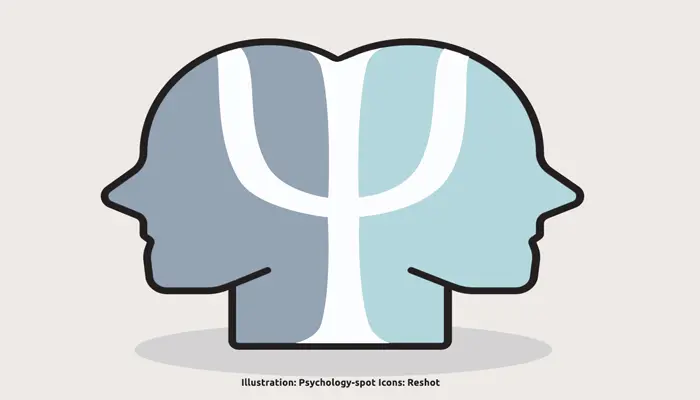
Right against left.
Believers against atheists.
Republicans against monarchists.
Deniers vs. Quislings …
We are often so fixated on what divides us that we forget everything that unites us. Blinded by division, we widen the gap. These differences lead, in the best of cases, to arguments, but on a social scale they are also the cause of⚫ conflicts and wars. They generate pain, suffering, loss, poverty… Which is precisely what we all want to escape from. However, it is no accidental that we are so polarized.
Division strategies
Divide et impera, (divide and rule) used to say Romans.
In 338 BC Rome defeated its greatest enemy of the time, the Latin League, made up of some 30 villages and tribes that sought to block Roman expansion. Their strategy was simple: they made the cities fight each other to win favor with Rome and become part of the empire, thus abandoning the League. Cities forgot that they had a common enemy, focused on their differences, and ended up fueling internal conflicts.
The strategy of gaining and/or maintaining power by “breaking” a large group into smaller pieces makes them have less energy and resources. Through this tactic, existing power structures are broken and people are prevented from uniting in large groups that can achieve more power and autonomy.
Basically, whoever applies this strategy creates a narrative in which each group blames the other for their problems. In this way, it fosters mutual distrust and amplifies conflicts, generally to hide inequalities, manipulations or injustices from power groups that are on a higher scale or want to dominate.
It is also common for groups to be “bribed” in some way, giving them the possibility of accessing certain resources – which may be material or psychological – so that they align themselves with power or fear that the “enemy” group will take them away privileges that actually keep them subdued.
The ultimate goal of division strategies is to create a fictional reality by nurturing differences that give rise to mistrust, anger, and mutual violence. In that fictitious reality we forget our true priorities and desires to enlist in a meaningless crusade, in which we only end up hurting each other.
Binary thinking as the basis of division
The advent of Judeo-Christian morality didn’t exactly improve things, the contrary. The existence of absolute evil opposed to absolute good leads us to extremes. That idea has polarized our thinking.
In fact, if we are born into Western society we will have a predominantly binary thinking that the school is in charge – conveniently – of consolidating when it teaches us, for example, that throughout history there have always been “very good” heroes who have fought against “very bad” villains.
That thought is so ingrained in our mind that we assume that anyone who does not think like us is wrong or is directly our enemy. We are so trained to seek what sets us apart that we overlook what unites us.
In situations of great uncertainty such as those that often bring about crises, this type of thinking becomes even more polarized. We take more extreme positions that separate us from the others while trying to protect ourselves from a false enemy.
Once we fall into that spiral, it is very difficult to get out. A study developed at Columbia University found that the exposure to political ideas contrary to ours does not bring us closer to those points of view, on the contrary, it reinforces our liberal or conservative tendencies. When we see in the other the incarnation of evil, we assume that we are the incarnation of good.
Division does not generate solutions
During the presidential elections in the United States, for example, the Latino vote showed a huge divide. While Latinos in Miami helped Republicans win Florida, Latinos in Arizona brought the state into the hands of Democrats for the first time in two decades.
However, a survey conducted by UnidosUS revealed that, although the political orientation of Latinos varies, their priorities and concerns are the same. Latinos across the country said they were concerned about the economy, health, immigration, education, and gun violence.
Despite what we may believe, ideas of division between groups do not usually arise or develop spontaneously in society. Its conception, diffusion and eventual acceptance are phases in which intervenes a powerful machinery, moved by both the economic and political powers and the media.
As long as we continue to have binary thinking, that machinery will continue to function. We will go through a process of deindividuation, so that we abandon the consciousness of ourselves to integrate ourselves into the group. Self-control disappears and we imitate collective behavior, which supplies individual judgment.
Blinded by that thinking, we will not realize that the more we get divided, the fewer problems we can solve. The more we focus on our differences, the more time we spend discussing them and the less we will realize what we can do to improve our lives. The more we blame each other, the less we fixate on the threads that manipulate opinion trends and, ultimately, our behaviors.
The English philosopher and mathematician Alfred North Whitehead once said: “Civilization advances by expanding the number of operations which we can perform without thinking about them.” And it is true, but from time to time we need to stop and think about what we are doing. Or we run the risk of becoming puppets in someone’s hands.
Sources:
Martínez, C. et. Al. (2020) UnidosUS Releases State Polling of Latino Voters on Priority Issues, Key Traits in a Presidential Candidate and Party Support. In: UnidosUS.
Bail, C. et. Al. (2018) Exposure to opposing views on social media can increase political polarization. PNAS; 115(37): 9216-9221.



